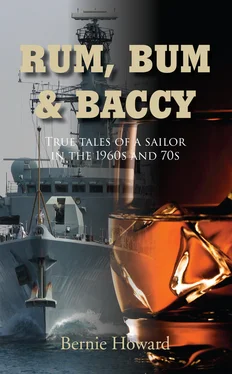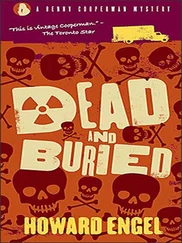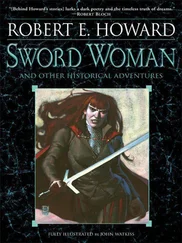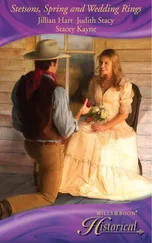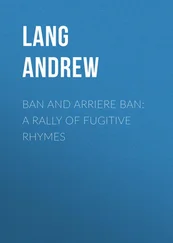RUM, BUM
and
BACCY
True Tales of a Sailor in the
1960s and 70s
Bernie Howard

MY Books
Copyright © B J Howard 2014
Cover design by B J Howard ©
All rights reserved. No part of this publication may be reproduced, stored in a retrieval system, or transmitted in any form or by any means, electronic, mechanical, photocopy, recording or otherwise, without prior written permission of the copyright owner. Nor can it be circulated in any form of binding or cover other than that in which it is published and without similar condition including this condition being imposed on a subsequent purchaser.
British Library Cataloguing Publication Data.
A catalogue record for this book is available from the British Library
ISBN 978-0-7552-1650-5
In the years since leaving the sea there have been many times whilst in conversation that I have had said to me that I should write a book.
Some of the tales I’ve written about are over forty years old and it has been great for me to recall memories of people, places and times of my life at sea in the Royal and Merchant Navy in the nineteen sixties and seventies.
I would like to thank the people who prompted me to write this and especially my good friend Allan Child who in so doing has brought about fond memories of times that shouldn’t be forgotten.
Chapter 1 – Ganges
Chapter 2 – Walter Raleigh
Chapter 3 – Pompey
Chapter 4 – Rum alias Grog or The Tot
Chapter 5 – Gib
Chapter 6 – Alan T Smith
Chapter 7 – Subic Bay
Chapter 8 – My Claim to Fame
Chapter 9 – Tales of Mombasa
Chapter 10 – Cape Town & Durban during Apartheid
Chapter 11 – St Helena
Chapter 12 – Singers
Chapter 13 – The Bugler
Chapter 14 – DQs Detention Quarters
Chapter 15 – Sexual and other Diseases
Chapter 16 – Runs Ashore in London
Chapter 17 – Dirty Dicks
Chapter 18 – The Unforgettable Aussie Gaye
Chapter 19 – Japan
Chapter 20 – Baccy
Chapter 21 – Freetown
Chapter 22 – Aden
Chapter 23 – Shot at, Locked up, Stripped, Merry Christmas
Chapter 24 – A Run Ashore that went Wrong
Chapter 25 – Guinea Pig
Chapter 26 – Young and Old
Chapter 27 – Bahrein
My Favourite Poem
Good Lord above send down a dove
With wings as sharp as razors
To cut the throats
Of them there blokes
Who sell bad beer to sailors.
Definition of a Dance
Naval encounter without the loss of seamen.
I was always going to sea when I left school, God knows why, as there had never been a sailor in my family, and the only ships I‘d ever seen were rowing boats at Hunstanton. In those days, prospective employers came to your school to head hunt, so when someone came from the Merchant Navy I went along and listened. Everything sounded great until the bit where you had to pay for uniform and training, and although not much, I did not think that my father’s wage would cover the halfpence of tar they cost. It was the same thing with the Fishing Fleet, and then along came the Royal Navy. Not only was there nothing to pay but you got paid. I was sold.
I had my medical in London on my fifteenth birthday having previously passed the entrance exams, so in the early summer of 1962 I was off. My father took me to Swaffham Station and as the Norwich train pulled in he told me, as he pushed me onto the train, that I didn’t have to go if I didn’t want to, placed half a crown in my hand and shut the door.
On arrival at Norwich I made the short walk to the Recruiting Office on Prince of Wales Road, where the rest of the Norfolk conscripts were waiting. A burly petty officer, who seemed like he’d had a tot too many, told us he hated Geordies and warned us to look out for them. He gave us the Queen’s shilling and sent us back to the station to catch the Ipswich train where we began our journey to HMS Ganges.
Ganges was a boy’s training establishment at Shotley which was just a few miles from Ipswich; being the size of a small town it housed two thousand two hundred boys and a few hundred ship’s company. By looking over the water you could see the ports of Harwich and Felixstowe.
On arriving at Ipswich we were met by lads not much older than us but in uniform, and petty officers who told us to wait together until the next train came in, then we would be taken by lorry to a place called the Annex.
The next train pulled in and out jumped what looked like a Borstal contingent. These lads looked bigger than us; all dressed in “TeddyBoy” suits or leather jackets and jeans, D. A. haircuts, sideburns, they looked tough and a voice behind me said, “Jocks and Geordies”. So this was a Geordie, obviously a Jock’s friend. Now us lads from Norfolk were mainly in school uniform, some even in short trousers, so we felt very intimidated.
We were now bundled into wagons with R.N. painted on the doors. A few miles up the road we passed HMS Ganges and pulled up at our destination – the Annex.
For the next six weeks we were prepared for life at Ganges, kitted out with uniforms, work clothes, sports kit and anything else we needed. We said goodbye to our civilian clothes and the next thing was hair cuts. So it was off for a quick visit to Shotley, the Ganges barber. Shotley could scalp a boy in seconds flat, so this visit didn’t take long. Now wearing the same clothes and with bald heads, we all looked the same, and the only way we could tell a Geordie or Jock from the rest was by not having a clue what they were saying. It wasn’t long, however, that we all picked up bits of each other’s lingo, dropped certain bits, and somehow formed our own language.
The Annexe was horrific – up at half past five in the morning for a freezing shower, double everywhere (run), no talking, no smiling, nothing on bread, no sugar, no toilet doors, no TV or radio, and after having been screamed at ’til seven o’clock in the evening, we retired to bed. Here we had to keep complete silence, but after only a few minutes some unfortunate would start crying or sneeze or a moth would fart. Screaming would start up again. Up we’d get, put all of our newly gained kit into our kit bags, go out to the Parade Ground with kit bags on our shoulders, and we’d run round and round until someone collapsed. I’ve done this in the pouring rain in pyjamas.
After a couple of weeks we had to march into Ganges to climb the mast. Our instruction for this was that it’s 142 feet high and has a net a dozen feet from the ground. Should you fall from halfway up, apparently you’d bounce off the net and go through the Post Office roof. If, however, you were near to the top, the net would make you into chips. There were P.T.I’s (physical training instructors) at different footage on the mast, which we thought were to help if you were in any difficulty; however, their purpose was, should you freeze in fear as many did, to scurry above the unfortunates and jam on their hands. Anyway, it must have worked because we all passed without anyone being chipped.
Being in the Navy you had to be able to swim and should you not pass the given test, you became a backward swimmer and had to go to the swimming pool at six o’clock in the morning every day until passing. First of all, you had to put on freezing cold, soaking wet overalls and then, lined up around the deep end, you’d get pushed in one by one. Then sink or swim. If you swam to the side – great, if you sank they’d hook you out with poles then, apparently to teach you quicker, you’d get pushed off the top board. This worked for me and I passed in three days.
Читать дальше
